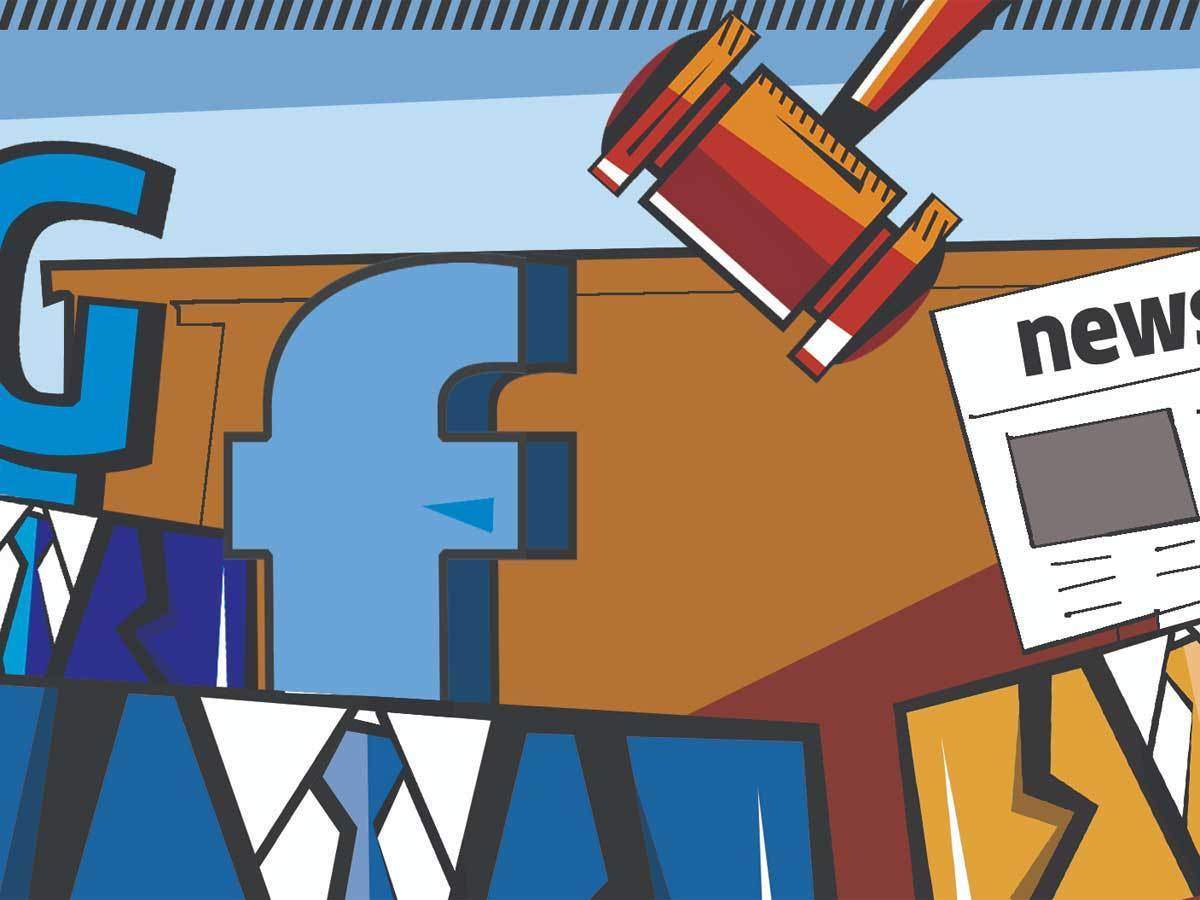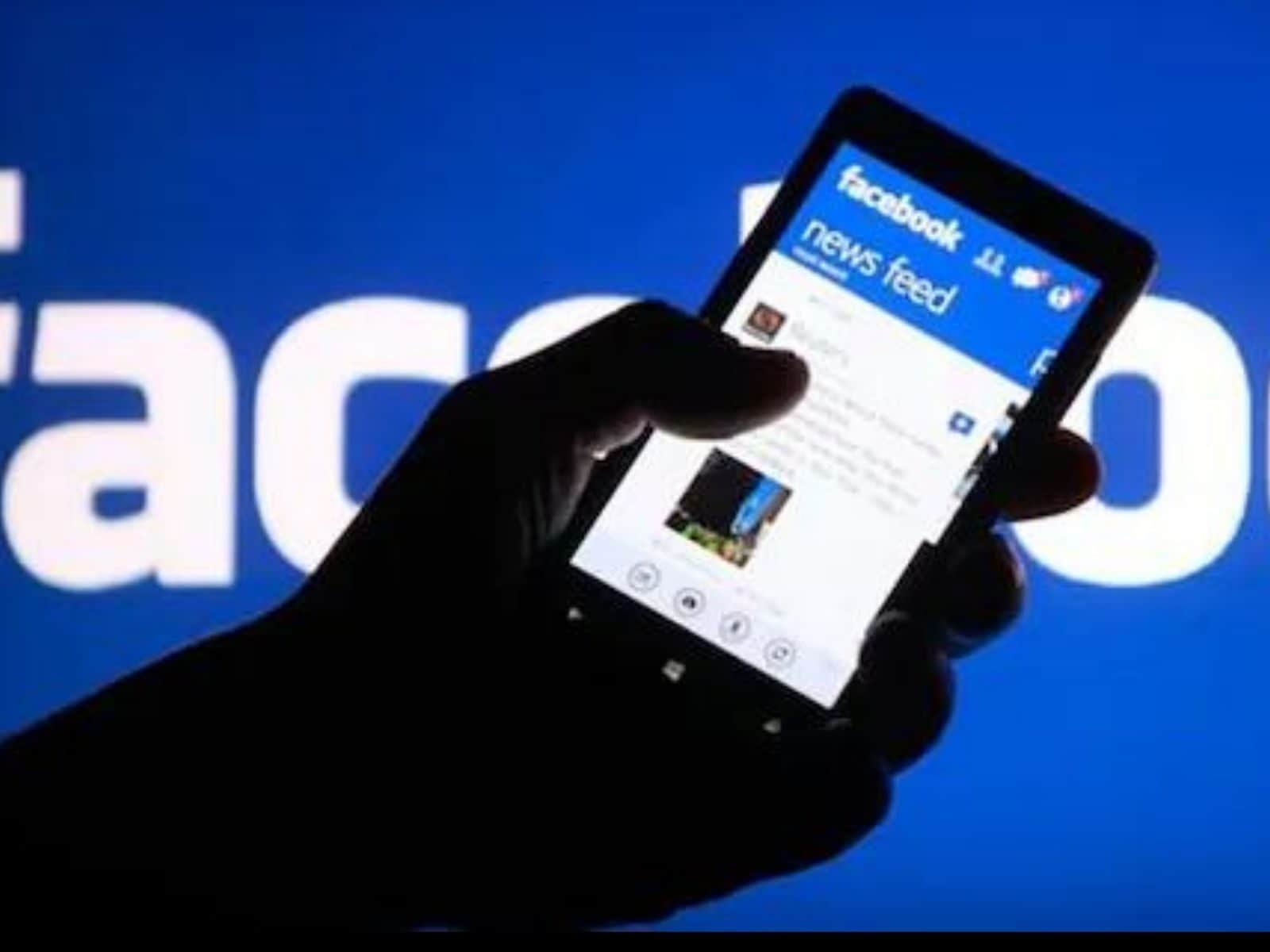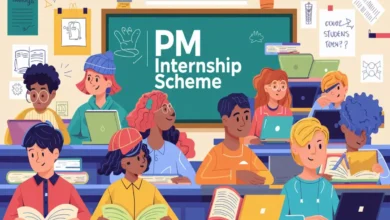Why a news media bargaining bill in US has riled Facebook and triggered a debate?

The proposed new law would give news of media bargaining organisations more negotiating power over fees for content shared by Internet companies. Such legislation already exists in Australia and France.
A legislative push in the United States to give news organisations more negotiating power over fees for content shared on social media sites like Facebook has been met with opposition. If the bill passes, Meta (formerly Facebook Inc.) has also threatened to remove all recent news content from its platform, as have other groups representing Internet behemoths such as Amazon and Google.
Similar legislation has been enacted in Australia and France, and companies such as Meta and Google have agreed to pay publishers primarily in those countries. Other countries, including Canada and New Zealand, are currently debating similar legislation.
“At the moment, no company should be forced to also pay for content that users do not want to see simply because it is a minor source of revenue.” Simply put, the government’s creation of a cartel-like entity that requires one private company to primarily subsidise other private companies sets a bad precedent for all American businesses.” Andy Stone, Meta’s policy communications director, tweeted on December 6.
What exactly is the proposed legislation?
The proposed Journalism Competition and Preservation Act (JCPA) of 2022 would give publishers more bargaining power when negotiating a larger share of ad revenue with companies like Facebook and Google. Publishers have long been concerned about declining revenues as social media platforms have monopolised a large portion of online advertising.
The bill was introduced in Congress by Minnesota’s influential Democratic Senator Amy Klobuchar, and it is said to have bipartisan support.
The Joint Comprehensive Plan of Action (JCPA) was initially included in the main annual national defence spending bill for the United States, which must be passed by the end of this fiscal year. However, on the day Tuesday, Congress removed the main JCPA from the defence bill, casting doubt on the proposal’s future.
What are the reactions of stakeholders to the proposal?
According to Meta, platforms like Facebook, contrary to what publishers claim, actually aid in distribution. This is also the argument it used to oppose Australian law.
The Computer & Communications Industry Association and also NetChoice have also stated that they will launch extensive anti-JCPA advertising campaigns. Amazon, Google, and Meta are among the companies represented in both groups.
“The Journalism Competition and Preservation Act overlooks an important point: publishers and broadcasters use our platform to benefit their bottom line, not the other way around,” Stone said in a company statement.
Meta’s threat was described as “undemocratic and unbecoming” by the News Media Alliance, a trade group representing the major newspaper industry and also a supporter of the JCPA proposal.
“These threats were made prior to the Australian government passing a similar law to compensate news outlets,” according to the statement. “However, they were unsuccessful, and news publishers were eventually paid.”

According to the organisations, the JCPA would “create an unwise antitrust exemption for all publishers and broadcasters.” These organisations have previously taken an anti-Big Tech stance.
What Australian law required social media companies to pay publishers?
Last year, Australia passed a similar law known as the News Media Bargaining Code, which elicited a similar reaction from Meta. Indeed, the primary social media platform had temporarily removed local news content from its news feed.
According to the Australian government’s review of the law’s first year of implementation, published in November, the law was a success, with more than 30 commercial agreements signed between Australian news outlets and also either Meta or Google.
“At least some of these agreements have also enabled news businesses, in particular, to hire more journalists and make other valuable investments to help their operations,” according to the report.
How are other major countries addressing this issue?
In 2019, France became the first EU country, much before Australia, to enact a directive on current media companies’ and news agencies’ publishing rights, known as “neighbouring rights.” It required tech companies to negotiate compensation with publishers for their news content.
After months of negotiations, Meta announced in October of last year that it would pay publishers for their content.
In Canada, a similar proposal is currently being debated, and lawmakers believe that if such legislation is passed, it will generate $241.7 million in revenue for Canadian news organisations each year.
The proposals that were approved compelled Google to launch News Showcase.
Google’s News Showcase is also available in a number of countries, including India, where 30 national, regional, and local news organisations are featured.
The Case for a Collective Media Bargaining Code in the News Media-
Should news snippets or main headlines be included in general copyright law rather than the proposed Code? Even if they did, would it solve the problem?
Think about movies and music. Piracy peaked in the 1990s and 2000s, when free download sites such as Limewire made it possible for people to share illegal, copyrighted content. Netflix, Disney Plus, Spotify, and Apple Music are examples of paid services that provide a similar service while still compensating creators. (Yes, it’s not as profitable for creators as it once was, but they’re still making money.)
Some argue that Google and Facebook are essentially large, legitimate Limewires. They’re giving away free content while monetizing it with billions of dollars in advertising. Previously, advertisements were hosted on news media websites.
Of course, media companies have the option of removing their websites from Google or Facebook. But, let’s face it, Google controls a disproportionately large portion of the Australian search market.
As a result, media companies have little bargaining power with tech behemoths such as Google and Facebook, whose market dominance allows them to set the rules. The media is caught between a rock and also a hard place in this situation: pull their content to make a point, and they lose money. Google and Facebook will receive less money if they continue to demand what they are currently demanding.
Big Tech’s claims that Australia’s Media Bargaining Code is inherently antithetical to the concept of “free internet” conveniently ignore the fact that the “free internet” they refer to generates a lot of money for the tech titans. The argument for unrestricted internet access directly contradicts their own threats to remove news from current Australian pages if the Code is enforced.

Aside from that, they both use targeted data from users who also interact with news articles – data that benefits both Facebook and Google directly, allowing them to increase their advertising dominance.
So, why not simply amend copyright legislation to include news clips, as Germany and France have? The German publishers fared poorly. Following the passage of the law, Google refused to collaborate with the copyright collective representing publishers. To date, the legislation has yielded little revenue for German publishers, and legal challenges are still pending.
Similarly, after the copyright law was changed in 2019, Google attempted to avoid paying media companies in France for over a year. Google agreed this week in France to pay a group of new publishers up to $98 million over three years, as part of a series of major individual digital copyright deals that independent publishers claim have left them in the dark.
This is not the search engine’s first battle. Google removed Spanish news sites from its global search results after Spanish courts ruled in favour of news companies in 2014.
The general public’s perception of ongoing legal battles and tense negotiations is also important. Despite vocal opposition from the tech industry, a recent poll found that 60% of Australians supported government regulation of Google and Facebook. Meanwhile, Google’s recent pop-up, which resulted in a video by Mel Silva, also Managing Director for Google Australia, has largely gone unnoticed, thanks in part to Google’s comparatively low tax burden in Australia.
Out of $4.8 billion in revenue, it paid only about $100 million in taxes to the government in 2019. This works out to a 2% tax rate if my billionaire math is correct. This is primarily because Google has long claimed that it does not’really’ do business in Australia, with the vast majority of its ad revenue booked through the Singapore office and the Sydney headquarters declared as a ‘agent.’ Companies with comparable income rates, such as BHP Iron Ore ($4.7 billion total income and $867 million tax paid), contributed nearly eight times as much to the government.
It’s difficult to imagine the general public sympathising with a multinational corporation that employs deceptive logic to justify a tax break. However, it is worth noting that News Corporation, possibly the most vocal supporter of the main News Media Bargaining Code, paid no taxes that year, or $100 million less than Google.
For the record, Nine, another vocal proponent of the legislation, paid $47 million on a total income of $2.5 billion, which is roughly the same as Google. Ten Network Holdings declared $337 million in total revenue and paid no tax, while Fairfax paid $1.6 million in tax on $449 million in total revenue (0.35%). Seven West Media paid $23 million in taxes on a total revenue of $1.8 billion (1.3%).
The Case Against the News Media Collective Bargaining Code
Aside from allegations of tax evasion, one of the most common public arguments against the Code is that media companies can generate revenue through paywalls and advertising on their websites, which is correct. The issue is that this money is increasingly being sucked up by advertising behemoths like Google and Facebook, and the general public dislikes paywalls.
As a result, there has been an endless stream of media closures and a rapid contraction of the media market, resulting in a non-competitive media environment. The government is attempting to regulate monopolies in the media industry in the same way that it regulates monopolies in other industries.
The revenue stream of traditional news media has been completely consumed by Google. Arguments that this is simply a byproduct of technological progress are false. This writer recently saw an argument on LinkedIn that news organisations should accept and innovate in the same way that other tech companies, such as Uber, have.
Using this analogy, Uber would steal a taxi driver’s keys, pick up a passenger, accept payment, and then return the car to the taxi driver. Google competes with news sites not by providing their own news content, but by selling Google’s ads through the news sites’ own content – directly competing with the news sites themselves.
Another popular argument against the Code is anti-big-media sentiment, specifically in response to News Corporation and Nine’s claim that they should be paid between $600 million and also $1 billion as part of their main agreement with the tech companies.
True, the current legislation disadvantages smaller media companies. Broadsheet Media has argued that because media companies do not produce news primarily (as defined by the main code as a current eligible recipient of payment), their news content will not be compensated, leaving them vulnerable.
“A significantly worse-case scenario is that a major media organisation will launch a stand-alone direct competitor to a major small publisher like Broadsheet, which will be partially funded through remuneration for competitive Covered News Content,” Broadsheet Media says.
“A competing publication that receives Code support endangers the audience and revenue of independent publishers who are not covered by the Code.” A similar outcome would almost certainly have a significant financial impact on competing small independent publishers, putting their viability in jeopardy.”
The narrow definition of the Code may encourage the very thing that the legislation is intended to prevent: monopolies. In this context, large players become even larger, effectively excluding smaller media companies that do not fit under the limited umbrella definition from potential negotiations. It contradicts the concept of a free media environment where all publishers have equal access.

It is also true that Big Tech deserves equal opportunity, and this reporter has noticed that the Code appears to only address the issue of payment in relation to two companies, namely Google and Facebook. (However, if there is “sufficient evidence to primarily establish that they also give rise to a bargaining power imbalance,” other platforms may be added in the future.)
While this makes sense in today’s market, which is dominated by Google and Facebook, what happens if Google withdraws from Australia? Isn’t it true that we’ll have to start from scratch with Bing or another search engine? Instead of naming two specific corporations, wouldn’t it be better to include a more general definition of who should follow this code?
Meanwhile, Google claims that their complaint is about specific sections of the Code that they believe are unfair. One of these is the final offer arbitration method, which the Code allows for if neither party can reach an agreement and in which a third party will also deliver a ‘final offer’ that both must accept.
Despite their recommendation that no changes to the current Code be made, the Senate Economics Legislation Committee acknowledged last week that this could be an issue.
Instead, Google would mainly prefer to pursue individual agreements through its Google News Showcase product, and has reached agreements with a variety of media companies in the hopes that its actions will persuade the government not to pass the Code. If such agreements show progress, the government may think about changing the Code.
So far, Google has signed a few smaller media companies to the code, but it appears that they are stepping up their efforts as the Code’s approval approaches. This week, it was announced that Seven West Media, the first major news company, had signed a deal worth $30 million per year.
They may also have to wait a little longer if they want to entice mega-media company Nine/Fairfax. “This is what monopolies do: they make an offer, primarily in the form of Google Showcase, but there is no offer to negotiate.” Everything must be done on their terms, which we refuse. “We support the government’s proposed legislation as the best way to ensure fair payment for our new content,” a Nine Entertainment representative said.
Google denied to Rolling Stone that it is ‘blackmailing’ Australian publishers, that it has purposefully removed specific news outlets from search results, and that its threat to leave Australia contradicts the very concept of a free, universal search engine.
Source of information.
Meanwhile, Facebook launched its newest product, Facebook News, in the United Kingdom last month, following an announcement last year that the social media network would also begin paying news organisations for their content. According to reports, the agreement will pay publishers millions of dollars to avoid government regulation, similar to Australia’s current News Media Bargaining Code.
Taking Down the Internet
Google claims that the Code will fundamentally break the way the internet works in its current form, citing recent criticisms of the Code from World Wide Web inventor Tim Berners-Lee and Atlassian co-founder Scott Farquhar.
So, will requiring payment for all internet connections have far-reaching consequences? Is it possible that this main Code could be used to seek compensation for any links delivered outside of news media via search and social platforms, potentially extending into broader copyright law? It’s a long shot, but it could also work. Removing the reference to links (but not snippets or images) from the current News Media Bargaining Code, on the other hand, would be a relatively minor change.
Google, like Facebook, is more likely to leave Australia, leaving us with an echo chamber of social media drivel. What’s left in our Facebook feeds now that news media is gone? To be honest, this is far more worrying.
The removal of legitimate news media from local Facebook feeds today may contribute to the spread of misinformation from shady sources and influencers.
Anyone who doubts the seriousness of such an echo chamber should consider Trump’s 2016 social media-fueled victory and how it led to a four-year-later storm on the Capitol – allegedly planned on Facebook after Trump and his followers perpetuated the false narrative that Biden’s victory was fraudulent.

The demise of Facebook may even drive more people to other social media platforms, especially the growing number of right-wing voices flocking to Parler, a social network billed as “the last bastion of free speech” that has resurfaced online after Amazon removed the site from their hosting platform. The problem here is that free speech does not imply tolerance for potentially harmful inaccuracies. At the very least, Facebook is attempting to prevent the spread of misinformation.
Finally, if the News Media Bargaining Code is passed in its current form, and Google follows Facebook’s lead in threatening to exit the Australian market, the global impact will be felt.
edited and proofread by nikita sharma




